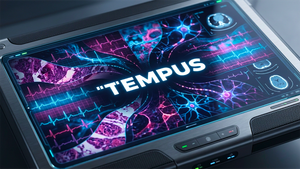(BPT) - You don't always know what's in your gene pool. Even with a detailed family health history, you may not have a complete picture for what you're at risk for developing. In fact, according to a 2018 research study, more than 80% of people with a BRCA1 or BRCA2 variant did not know they have one.
That said, genetic testing can be expensive, even if you have insurance. Many people do not have a family history of cancer that would qualify them for traditional genetic testing through a healthcare professional. However, 23andMe has expanded its BRCA1/BRCA2 (Selected Variants) Genetic Health Risk Report*, providing an affordable option that gives folks, especially those in underserved communities, access to their genetics. This report can help individuals identify their risk of developing breast cancer and other diseases.
Affordable genetic testing with powerful results
In 2018, 23andMe received the first Federal Drug Administration (FDA) authorization for a direct-to-consumer genetic test for cancer risk to report three variants in the BRCA1 and BRCA2 genes. These genes are known to be associated with a higher risk for breast, ovarian, prostate and pancreatic cancer.
Now, the company has received FDA clearance to expand its report, allowing 23andMe customers to learn whether they have one or more of 44 genetic variants found on the BRCA1 and BRCA2 genes. Women with even just one of these genetic variants can have up to an 85% greater risk of developing breast or other associated cancers than the general population.
This new report hands consumers powerful information that they can use to work with a healthcare professional to mitigate their health risks. However, what makes it stand out is its potential to close the health care gap for traditionally underserved populations.
How underserved communities can benefit from genetic testing
The 44 BRCA1/BRCA2 variants the company now tests for account for roughly 30-40% of cancer-related BRCA1/BRCA2 variants among people of African American, non-Ashkenazi European and Hispanic/Latino descent and several variants found in people of East Asian and South Asian descent.
The expanded report is just one way 23andMe is making progress on its mission to help people access, understand and benefit from the human genome, especially for traditionally underserved communities. There are significant disparities in access to BRCA1/BRCA2 genetic testing in some communities in the U.S., including the Black, Hispanic/Latino and Asian communities. Black Americans also experience dramatic disparities in breast cancer outcomes, according to published research by the American Cancer Society.
How you can learn more about your genetic health risks
New and existing 23andMe Health + Ancestry Service customers who were genotyped on the company's most recent platform can access the expanded BRCA1/BRCA2 (Selected Variants) Genetic Health Risk Report. The report also includes an education module so individuals are fully informed of what they can learn from this report and how to use the results before viewing the report.
The 23andMe BRCA1/BRCA2 (Selected Variants) Genetic Health Risk report is not a comprehensive genetic test, is intended for adults, does not diagnose cancer and should not be used on its own to make medical decisions. Genetic variants found in the 23andMe report require confirmatory testing. However, knowing you have a variant provides a critical opportunity to discuss options with your healthcare provider, get confirmatory genetic testing and take preventive action. To learn more, visit 23andMe.com/DNA-Health-Ancestry.
*To learn more about the genetic health risk report mentioned here as well as other important information about 23andMe, please see site for details.





